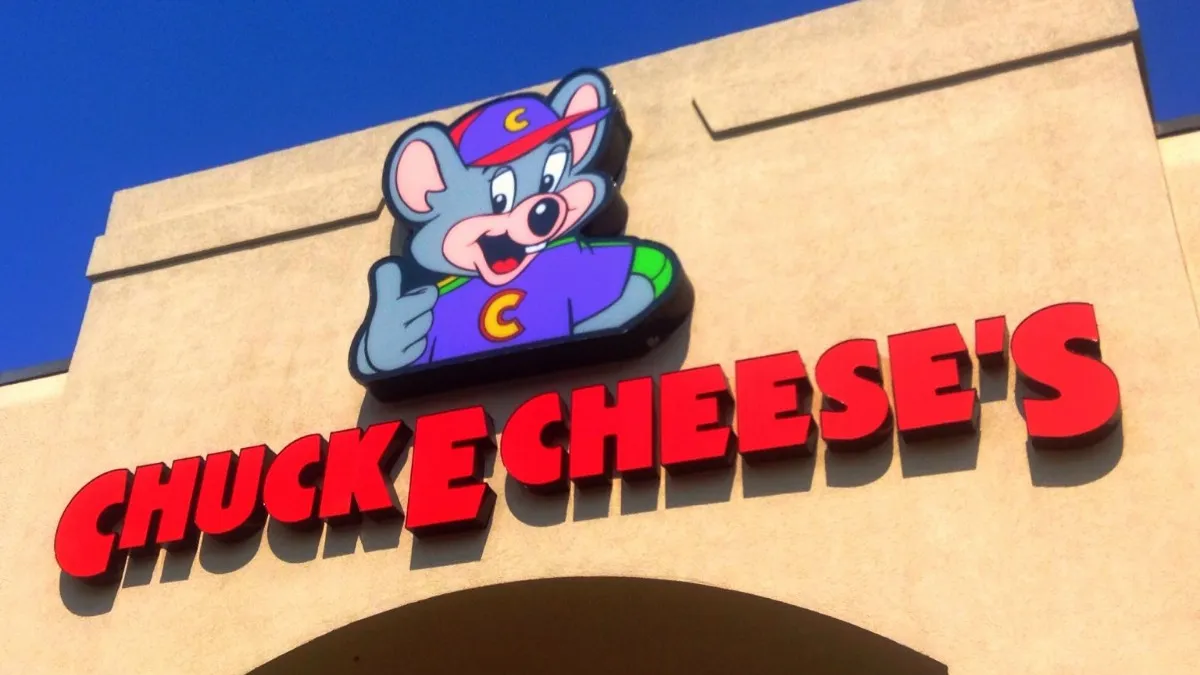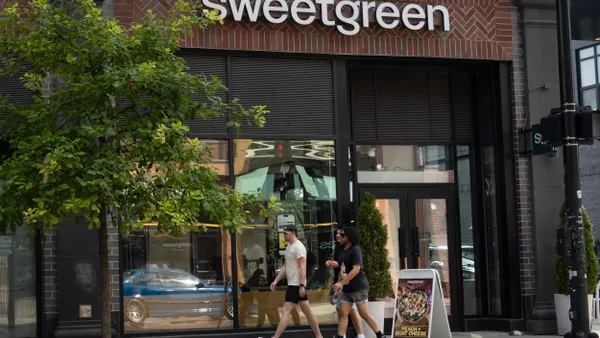Dive Brief:
- Chuck E. Cheese is reportedly in discussion with lenders to raise money to avoid bankruptcy, according to The Wall Street Journal, which cited people familiar with the matter. The publication reports that the children’s entertainment and restaurant chain is seeking a $200 million loan.
- These talks come as a $1.9 million quarterly payment on loans is due at the end of this month. Chuck E. Cheese has nearly $1 billion in debt and paid more than $100 million in interest on that debt last year.
- The company has stopped making its monthly rent payments and has furloughed most of its employees and 65% of its support staff.
Dive Insight:
Like most of its full-service peers that rely on in-restaurant dining, Chuck E. Cheese's sales took a deep hit when nationwide lockdowns went into place in March.
The company started reopening restaurants two weeks ago, and check customers’ temperatures as they enter the venue. However, Chuck E. Cheese has a unique challenge in that it relies on two major revenue channels — its restaurant business and its entertainment business. While dining rooms might be reopening at limited capacity throughout the country, customers aren’t necessarily rushing back.
Customers may be even more concerned about entertainment venues. According to a March study, 44% of consumers said they will attend fewer public events even after public health officials classify them as safe. Further, some respondents say it will take months to “possibly never” to return to indoor entertainment venues post-pandemic. McDonald’s announced it is keeping its Play Places closed for now, perhaps an indicator of how this will pan out in the restaurant space.
Chuck E. Cheese has been experiencing pressure from growing competition, like bounce houses and trampoline parks, for a few years. According to Allied Market Research, the market for children entertainment centers was valued at $8.15 billion in 2018 and was projected to reach $15.37 billion by 2026, a compound annual growth rate of 8.4%. CEC Entertainment's parent company, Queso Holdings, tried to merge with Leo Holdings, but the deal fell apart in July 2019. The deal would have helped CEC Entertainment to pay off $300 million in debt.
Chuck E. Cheese has grown its sales by 2.7% in 2019, the year after it launched All You Can Play, a new loyalty program and gaming app, and national delivery. These results could be in part from the growing demand for eatertainment. Technomic estimates that 70% of consumers prefer to visit eatertainment formats versus a traditional casual dining restaurant for group occasions.
But that sharp eatertainment trajectory was pre-COVID-19. The segment could look significantly different when social distancing measures ease up. Chuck E. Cheese has attempted to shift its operations to off-premise, including spinning off a delivery-only concept called Pasqually's Pizza & Wings. It has also added at-home birthday parties through game apps and dance videos through YouTube Kids. But considering the company’s discussions with lenders, these changes likely haven’t been enough to reduce weekly cash burn and avoid losing both its dine-in and entertainment pieces. If Chuck E. Cheese can’t find a way to fend off bankruptcy, it will join the nearly two-thirds of publicly-traded restaurants that are now at risk.









